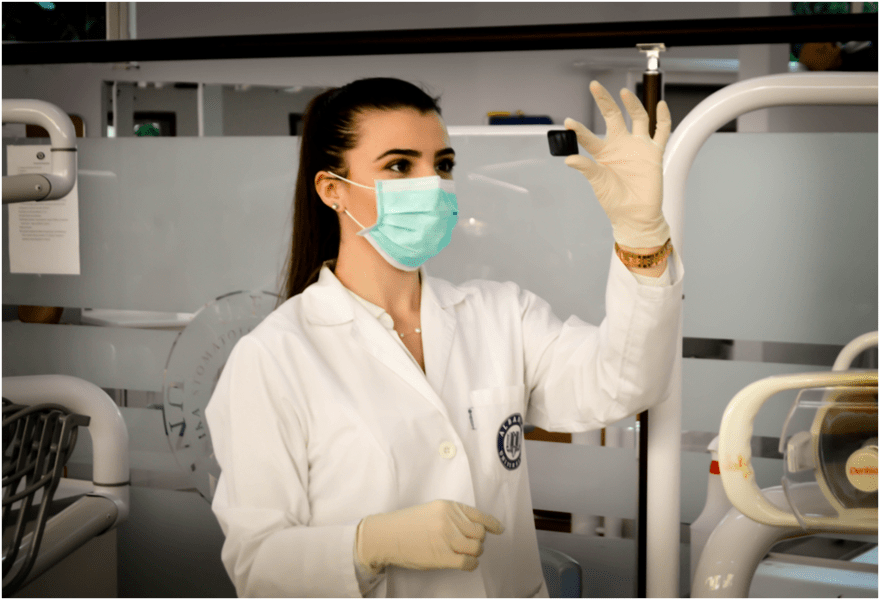Preventive Healthcare
Tissue Transglutaminase IgA Test

Table of Contents
- What Is A Tissue Transglutaminase IgA Test?
- Why is a tTG-IgA test done?
- How is a tTG-IgA test done?
- What are the uses of tTG IgA test?
- What do my tTG IgA test results mean?
- What is a high tTG level?
- What might affect my test results?
- What are the benefits of tTG IgA test?
- Risks and other considerations
- Conclusion
- FAQs
A blood test is crucial to determine the underlying health condition of your body. The doctors use the blood sample and test results to conduct further diagnosis. These tests also help you know if your body is functioning correctly.
One such test is the tTG test. It is also known as the tissue transglutaminase IgA test. The test happens to diagnose celiac disease. tTG-IgA test is a blood test to know the antibodies in the body. If the antibodies are high in number, it indicates a celiac condition.
Read this blog to know everything about the tTG-IgA test. Know everything here, from its meaning, symptoms, and procedure to the risks and complications involved.
What Is A Tissue Transglutaminase IgA Test?
The tTG test is helpful to identify celiac disease in the human body. In the case of celiac disease, your immune system triggers the moment you consume gluten-rich food. Gluten is a threat to your body in such conditions. Here's what happens in celiac disease:
As a result, the body produces tons of antibodies to fight the gluten. During this process, these antibodies attack your enzymes named tissue transglutaminase. And this enzyme is responsible for healing your cells.
These antibodies are known as anti-tissue transglutaminase antibodies. The level of these antibodies rises when you have celiac disease. Hence, the Anti tTG-IgA test shows an increase in such antibodies.
Why is a tTG-IgA test done?
Anti-tTG-IgA test is helpful when you notice symptoms of celiac disease. However, the symptoms depend on person to person. In the case of celiac disease, here are a few signs the patient might face:
- Bloating
- Diarrhea
- Gaseous feeling
- Vomiting
- Unending nausea
- Inability to digest milk
- Watery stool
But, these symptoms are prevalent in children. Other symptoms you might see are skin rashes and tooth enamel problems. Children with this disease usually have trouble growing with age due to an inability to absorb nutrients.
Hence, there is a delay in puberty, height growth, inability to grasp concepts, and slow metabolism. Always look for all the symptoms before rushing to the doctor. If you have only one or two symptoms, it can mean you’ve celiac disease or other medical conditions.
How is a tTG-IgA test done?
To conduct the anti-tTG test, the professional will take a small blood sample from your veins. The tTG test procedure usually takes a few minutes. The blood test is for diagnosing the level of anti-tissue transglutaminase antibodies. If you have a high level of antibodies, you have celiac disease.
Celiac disease testing also depends on various factors, such as:
- Medical history of your family: Celiac disease is sometimes genetic as well. You can get this condition from your family members. The healthcare provider will ask for symptoms and your family medical history for further tests.
- Physical changes: Your healthcare professional will see if you have other signs like weight loss, pain, skin rashes, tooth decay, swelling, and less height according to age.
- Blood testing: A tTG blood test is the most effective way to discover the disease. The doctor will take a blood sample and send it for antibody testing. And the antibodies level will determine your celiac disease level.
- Biopsy: The doctor tests a tissue of your body in the biopsy process. It is placed under a microscope to see the presence of celiac disease. This tissue comes from the small intestine.
- Genetic testing: In this method, your doctor takes a small sample of the inside of your cheek. This sample test helps see if you have inherited the disease genetically. Your family members must also discuss their celiac disease symptoms and history.
What are the uses of tTG IgA test?
The tTG IgA test is primarily used to diagnose celiac disease, but the tTG IgA test uses also extends to:
- Identify gluten sensitivity in individuals with symptoms related to gluten intake but without full celiac disease
- Monitor treatment response and dietary compliance in patients diagnosed with celiac disease by measuring antibody levels after starting a gluten-free diet
- Screen at-risk individuals due to family history or associated autoimmune conditions like type 1 diabetes or thyroid disease
What do my tTG IgA test results mean?
Your test results will change based on your age, medical history, genetics, and other factors. Also, the test lab makes a huge difference. Hence, you must choose the best lab to get the anti-tTG test done. Therefore, asking your doctor about your tTG blood test meaning is the ideal way ahead.
Getting your tests done from the best lab gives you an accurate celiac disease level. You have celiac disease or other such disorders if you have high antibodies. However, the tests can be ineffective in children who suffer from the disease. Hence, reaching out to the best lab is crucial.
With a TtG test in the normal range, you can be stress-free about the nonexistence of celiac disease.
What is a high tTG level?
The highest level of tTG in blood is 11 U/mL.It means you have celiac disease and need to diagnose it immediately. You must also know the tTG test normal range in the human body.
If the antibody level is less than or equal to 3 U/mL, it is at an average level. And if it is 4-10 U/mL, it is at a weak positive range. Lastly, if it is 11 U/mL or more, your body is highly favorable to having celiac disease.
What might affect my test results?
Your tTG test levels are highly affected by the consumption of gluten. Before the test, avoid eating gluten-rich food for accurate results. Healthcare providers usually recommend that patients get a tTG test before consuming gluten. Apart from this, you don't need to do any other preparations for the test.
Secondly, you must inform your healthcare professional about your medical history and medications before taking the test. In addition, also let the professional know if you've taken any medication. The professional will ask you to stop consuming medicines a few hours before the test.
Blood tests are by far the best way for celiac disease diagnosis. However, a few people don't have adequate antibodies in their bodies. Hence, the tTG blood test can sometimes give a false result.
Also, if you're getting your child tested for celiac disease, consider checking other symptoms. Check if your kid is malnourished, sick, or underweight.
What are the benefits of tTG IgA test?
The benefits of the tTG IgA test include:
- High accuracy: It correctly identifies about 98% of people with celiac disease who are consuming gluten, making it the most sensitive and effective blood test for this condition.
- Non-invasive and convenient: As a blood test, it is less invasive than intestinal biopsies and can be easily repeated to monitor disease progression or response to treatment.
- Early detection: The tTG IgA test helps diagnose celiac disease before severe intestinal damage occurs, allowing prompt treatment and prevention of complications like malnutrition and nutrient deficiencies.
- Guides clinical decisions: The tTG IgA test report, combined with symptoms and other investigations, assists healthcare providers in confirming the diagnosis and tailoring individualised management plans.
Risks and other considerations
There is no risk in getting a tTG blood test done. It is merely a small blood test. You must visit your nearest pathology center and submit your blood sample. And the pathologist will give you the result in a few hours.
After drawing the blood, you'll notice soreness or bleeding from the arm. However, do consider the inaccuracy of tTG blood tests in children. Ask your doctor to prescribe other diagnostic tests for accurate results.
Other considerations are age, medical history, previous health conditions, and gender.
Check your diet and see if you're allergic to gluten. Food items like wheat and barley have high levels of gluten in them. Celiac disease affects your digestive system, and you'll face bowel movement issues.
You or your child might face symptoms like abdominal pain, fatigue, diarrhea, malnutrition, weight loss, muscle or joint pain, and gas.
If you're thinking about what other tests you can get done for diagnosing celiac disease, here are a few:
- Getting the C reactive protein rate checked. It is practical to know about the poor absorption of proteins and nutrients. A few symptoms of this are iron deficiency and unabsorbed fat.
- A tissue sample of your small intestine also helps diagnose celiac disease. A tube is inserted down your throat to your intestine to get a tissue sample.
These are the two proven and effective ways of diagnosing the presence of celiac disease other than blood testing. You can sometimes go for tests other than blood testing.
Conclusion
Due to lactose and gluten intolerance in people, anybody could be prone to celiac disease. Hence, you need to get the test done if you notice any of the symptoms mentioned in the blog.
Metropolis Lab is in significant areas of a city and every town. You must get your blood test done in the best diagnostic center nationwide. Metropolis has branches scattered in major countries like the Middle East and Africa.
The benefits of choosing Metropolis are:
- Get your reports in less than 24 hours
- Get blood, urine and stool tested
- Located in several places near you
So, start looking for the nearest Metropolis center and book an appointment online. You can also directly book the appointment by visiting the diagnostic center.
FAQs
What is a tTG IgA test for?
The tTG IgA test helps diagnose celiac disease by detecting antibodies against tissue transglutaminase, which are typically present when gluten triggers an immune response.
What happens if tTG is positive?
A positive tTG IgA result suggests celiac disease. Further confirmation may involve an intestinal biopsy or additional tests to verify the diagnosis.
What IgA levels indicate celiac disease?
Higher than tTG IgA test normal range levels strongly indicate celiac disease, especially when supported by symptoms and other diagnostic results. Reference values may vary slightly between labs.
What is the normal tTG range?
A tTG IgA test normal range is typically less than 4-10 U/mL, though exact cut-offs can differ by laboratory standards.
When should I consider getting a tTG IgA test?
You should consider the test if you have chronic digestive issues, unexplained nutrient deficiencies, or symptoms suggestive of celiac disease.











































